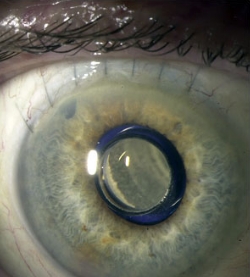Source: Down Maine Veterinary Clinic
Click photo for larger view.
There’s an email that makes the rounds on the Internet about three signs for identifying a stroke: Can the person smile, raise both arms, and speak a simple sentence.
“The Smile Test” was originally presented at a conference hosted by the American Stroke Association (ASA) in 2003. The ASA makes a point of not endorsing this test as a way to identify stroke. The research that came up with these three signs was based on a very small study.
Stick out your tongue
Since 2006 there’s been an additional sign of stroke circulating in emails: Ask the person to stick out their tongue and see if comes out straight or if it’s “crooked,” that is, if it deviates to one side. This is a less reliable indicator of stroke simply because “crooked” is open to interpretation.

























